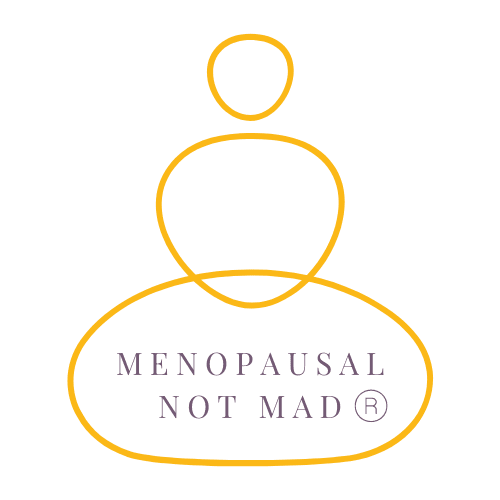There is a lot of information for you to google on Hormone Replacement Therapy (HRT ), but most of it is outdated, incorrect and based on flawed misinformation! So… you’re now in a great place as we only talk facts and evidence based info so you’re safe here.
As you may already know,we are huge advocates of HRT based on personal and professional experiences. There is a vast amount of evidence on the benefits of HRT for our physical and mental wellbeing; including the longer term health benefits such as bone, heart and brain health.
You’re much more at risk of breast cancer if you don’t exercise, if you drink more than 2 units of alcohol a day (that’s only a small glass of wine!) or if you’re very overweight and recent studies evidence that estrogen in HRT is not the reason for the very small increased breast cancer risk! It is assumed (not evidenced) that this risk is more likely to be due to synthetic progesterone, such as that in the combined HRT tablets (not Bijuve) or the combined patches.
This is not a reason to panic if you’re on the above products! They are still excellent HRT products but you may decide to make a different decision if you know the above information or you may be happy to accept the small and as yet unproven risk.
If a woman chooses not to use HRT; we would merely ask her to consider all the facts first.
Each of us is different (even though we all have basically the same bits and bobs!)
Ultimately, the aim is to ensure you find the most appropriate help for your symptoms and have access to the most effective, tailored long term health solution(s) possible.
Struggling to get a peri menopause diagnosis from your doctor?
The National Institute for Health and Care Excellence (N.I.C.E) recommends the use of HRT and clearly guides medics to assess by reviewing symptoms.
You can read the N.I.C.E guidelines and further guidance from the General Medical Council (G.M.C) below.
These days HRT is not the same as when our mothers were peri menopausal.
A well known 2002 study by the Women’s Health Initiative (WHI) linking breast cancer with HRT, has since been dismissed as hugely flawed; but of course this part of the story isn’t what hits the headlines.
HRT is safer than ever and any assumed risks are really small.
Read the HRT updates from July 2022 by clicking HERE
NOTE*
Some peri menopause ‘remedies’ and solution options are quite simply not safe, so please check before wasting your time, your money and your health, on anything unproven, and always use regulated HRT (Specifically avoid compounded hormone products)
Although breast cancer is a devastating disease, you may not know that many more women die of heart disease than breast cancer.
Part of this is due to the reduced protection we have as our estrogen levels drop, but also women can feel so awful during peri menopause that they are unable to exercise or they don’t eat as healthily as they might; so their overall health declines; which has the knock on effect of making them more susceptible to heart problems.
The Benefits of HRT

The overall benefits of replacing our hormones after we become peri menopausal are very individual as we all feel a little bit different in terms of symptoms and impacts on our health, but in general, the aim is for us to feel as well as we would want to in order to be able to exercise well, eat well and live a full life.
The key benefits are evidenced to be:
Long term improved protection from :
Cardiovascular Disease
Osteoporosis
Dementia
Diabetes
AND: Breast Cancer! (in the case of Estrogen only HRT)
In terms of daily benefits; If you have a read of the long list of symptoms on this site, you’ll notice that HRT is helpful with most of them (if they are caused by menopause of course!)
The message here is to become informed and not to be scared of HRT so that you can make the right decision for you.
Why do we need HRT?

Some of you reading this will still view HRT as the enemy and the bringer of cancer so we urge you to read a very informative book called Oestrogen Matters (by Dr Avrum Bluming & Carole Tavris), which details clear and indisputable evidence to the contrary.
Aside from that we have made it our mission to become informed on what is and isn’t fact about HRT; so stick with us and you’ll always be up to date.
In the 1800s we didn’t live long enough to experience the symptoms we now feel so it’s only in recent years we have needed to address the challenges that come with our new longer lifespan.
Women often say they want to manage their menopause ‘naturally’, so here are a few things to consider…
Regulated HRT is all about replacing the missing estrogen with a natural (yam or soy based) hormone, offering huge health protecting properties, which is the most effective option for most women.
Conversely; the huge array of apparent ‘natural’ solutions you have access to, can be harmful (unregulated) and will probably do little to help you in the long term.
We need estrogen and trying to manage without an essential hormone is actually not even logical if there is a way to replace it!
By way of a comparison; we wouldn’t dream of telling a diabetic to try to manage without their insulin top ups or expect someone with an underactive thyroid to just ‘get on with it’ minus their daily thyroxine!
HRT is no different.
We live longer than nature originally intended so we need to replace the hormones that have naturally declined as we were not expected to need them!
If you throw an assortment of lotions and potions at your symptoms, instead of addressing the real issue, you’re in danger of adverse effects and of wasting your money; so please just think about what you’re trying to achieve and let’s get a plan in place, that’s just for you and what you need.
Are there Risks when using HRT?

Blood Clots?
HRT tablets (not patches, sprays or gels) are linked with a very slightly higher risk of developing a blood clot. (similar to that with the contraceptive pill)
If you’re already at higher risk of blood clots (for example, if you’re very overweight) you CAN still take HRT but should be offered patches, spray or gel rather than tablets.
*If you have a strong family history of blood clots or if there is another reason why you’re at high risk of blood clots, you may be referred to a specialist in blood conditions before considering HRT but you are not automatically contraindicated for HRT.
Heart Disease & Stroke?
Studies show that If you start HRT before you’re 60, you will greatly benefit from further protection from cardiovascular disease (CVD)
After aged 60 you will have a reduced benefit but not an increased risk of heart disease or stroke and HRT doesn’t affect your risk of dying from either.
HRT tablets (not patches or gels) slightly raise the risk of stroke due to the above blood clot risk but perspective and the whole picture is key here.
It’s also important to remember that the risk of stroke in women under 60 is not high enough to be statistically relevant.
Breast Cancer?
Studies show that estrogen only HRT causes no change in the risk of breast cancer and can actually reduce the risks!
Women taking HRT which contains estrogen and progestogen (combined) have been shown to have a very slightly increased breast cancer risk when using synthetic progesterone but there are no studies evidencing that HRT caused the breast cancer.
A link and a cause are not the same thing.
Osteoporosis?
When your ovaries stop making estrogen your bones become thinner and you have a higher risk of osteoporosis, (where your bones break more easily)
You should be given advice about bone health and osteoporosis at your GP appointment and again when reviewing any HRT treatment.
Your GP should explain that HRT reduces the risk of breaking bones.
This benefit only lasts whilst you are taking HRT but it may last longer if you have taken HRT for a long time.
*information taken from updated NICE guidelines Dec 2019




